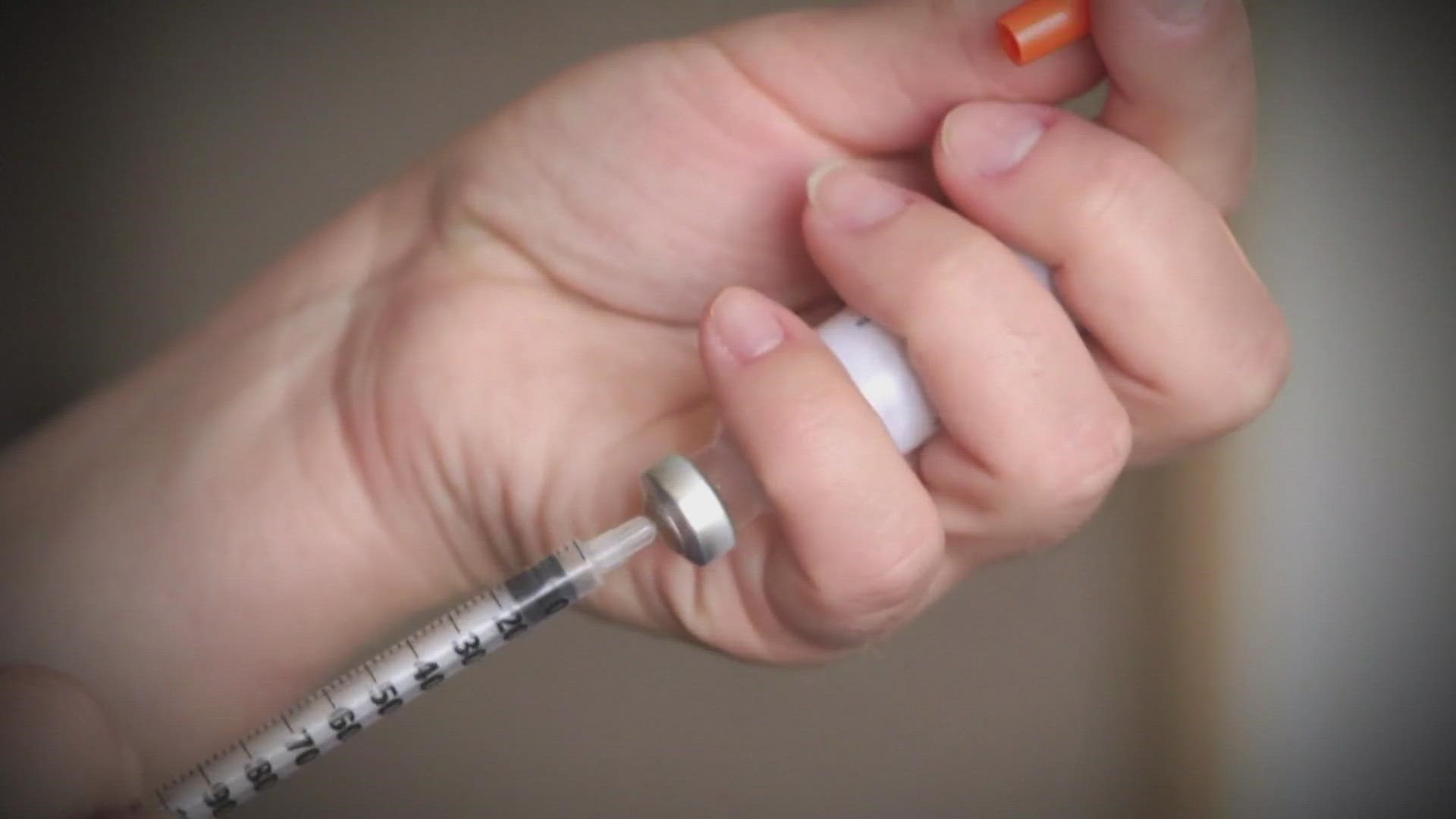OLYMPIA, Wash. — Advocates pushing for more affordable insulin prices are seeing some movement.
Eli Lilly recently announced caps on out-of-pocket insulin prices. In Washington state, Senate Bill 5729 could make permanent a statewide cap on insulin prices for some people who use it.
KING 5 spoke with several people involved with recent efforts to get their perspectives on what's happened so far and what could be next.
Dr. Irl Hirsch, a professor at the UW School of Medicine with decades of experience treating patients, doing research and advocating for affordable insulin prices, said skyrocketing costs didn't come out of anywhere.
"The insulin cost problem, we saw it starting 20 years ago, and I knew it was going to happen, I just didn't know how bad or when it was going to happen," Hirsch said. "It was like watching two trains that were going to hit, and I knew this was going to become a bigger problem, and it did, and what became very interesting about this is that it was a bigger problem depending on one's insurance and depending on where one lived."
Hirsch said political controversies and conflicts of interest stymied efforts to see national limits on insulin costs, and that manufacturers got most of the blame for rising prices -- though he believes pharmacy benefit managers and "in-between" players contributed to costs increasing. At the end of the day, he said patients were impacted.
"A few years ago I had incredible situations with patients here in Seattle telling me, I have to decide if I can eat or should I buy insulin instead? I've had patients say they've run their credit card to the ground and now they couldn't get a credit to buy a car because of how behind they were on their payments for insulin," Hirsch said. "[I] don't see that anymore in Washington state and haven't for the last few years."
Hirsch said the Affordable Care Act helped to fill some gaps, especially an extension on using parental health insurance until patients turned 26. He said Medicaid expansion also made a difference in Washington, but not every state saw that impact, and many waited to see if Congress would take action.
"The politicians have had their opportunities to fix this and they came close last summer but they didn't quite do it," Hirsch said. "That's what makes the Eli Lilly decision this week so important; they went above the politicians and we will now have, in the very near future, affordable insulin. So, the problems with insulin rationing, the problems with potentially deadly blood sugars in the emergency room that we have seen so often, that should get much better. It won't go away, but it will get much better."
Hirsch said he is interested to see how efforts by a not-for-profit manufacturer to produce and sell insulin at cost will impact the market. Personally, he'd like to see insulin available in the United States without a prescription, like in some other countries; and he'd like to see action to make insulin more accessible in general worldwide.
"There are still parts of the world today, low-income countries in particular, where insulin is still not available," Hirsch said. "What many of us now need to do - especially people like myself in my position - is we need to start focusing on people who need insulin in these other countries."
State Senator Karen Keiser (D-33rd Legislative District) has been working to pass a bill that would permanently cap the cost of insulin for some Washingtonians.
"I've been working on this for many years and beginning in 2019 and 2020 we were able to pass the very first limit on insulin costs out of pocket at $100 a month, that was our first step," Sen. Keiser said. "Then we decided that was too high, we thought the federal government might do something, but we passed a $35 out-of-pocket limit, and then the federal government didn't do anything so we passed a permanent $35 limit out of pocket but there's still more to do."
Sen. Keiser said there are more than half a million people in Washington with diabetes and thousands more children.
"We've heard testimony over the years of people coming to a point where thy had no money and they need insulin, and they would cut what they have in half to get just a little bit and they would damage their bodies by doing that," Sen. Keiser said. "That is a road to ruin and people were doing it over and over again because this medicine costs too much, and it's too much. People should not pay that much for a medicine invented over 100 years ago and only costs $5 or so to manufacture."
Matthew Hepner, the father to a daughter with Type 1 diabetes, spoke in favor of the bill. He was heartened to see it pass unanimously in the state senate.
"Bipartisan support, which is huge, and there are efforts on both sides of the aisle - Democrats and Republicans alike," Hepner said. "It's a relief, but it's not a win. It doesn't change, they're still going to be fighting the insulin battle every day, the highs and the lows, but if anything it removes that fear of, do I pay my rent or do I get medicine? I think that's a huge relief and hopefully, we can start working on the quality of life issues after this, for the community as a whole -- hopefully, this can help structure the community to do greater things for the state."
Next, he'd like to see action to make other medical needs more affordable, along with investments in rural medical access and ending school nursing shortages.

